Презентація Modal verbs
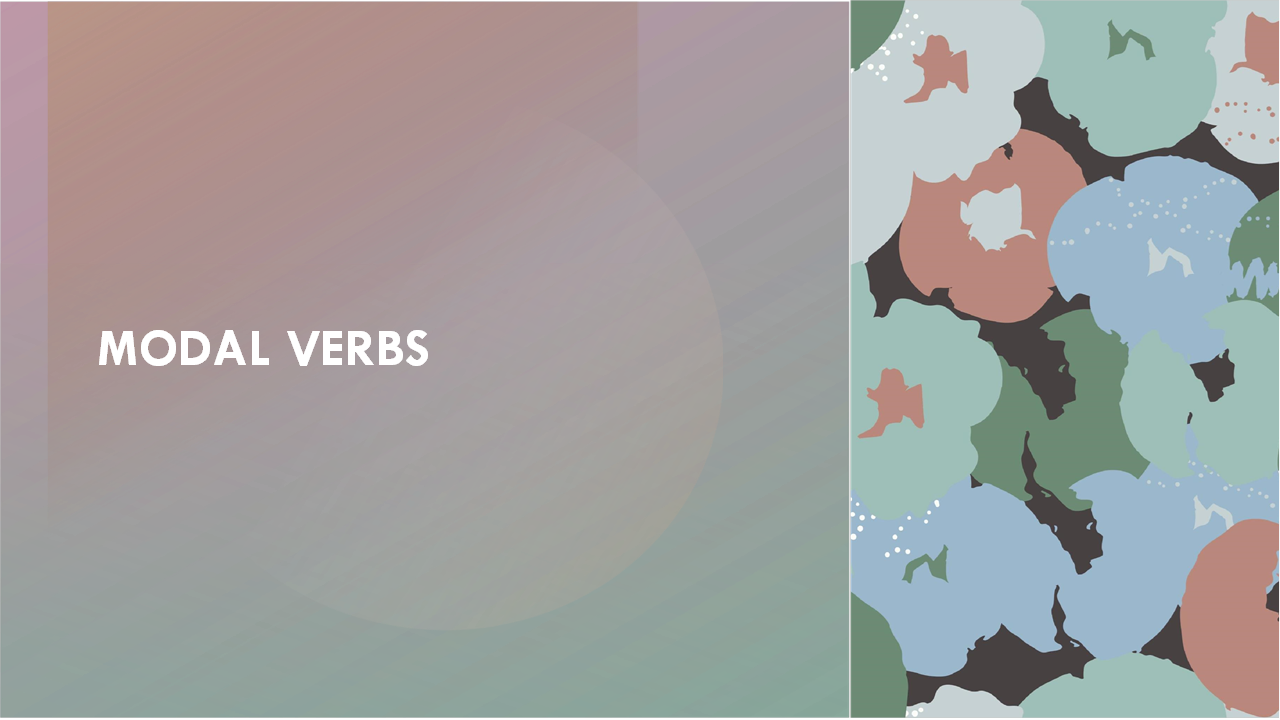
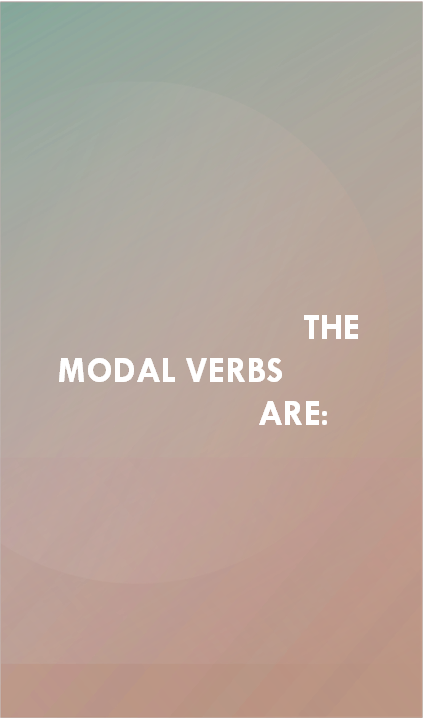
|
|
can may must shall will |
could might should would |
|
||||||
|
Modal verbs are used to express functions such as: |
|
Permission |
|
Ability |
|
Obligation |
|||
|
Prohibition |
|
Lack of necessity |
|
Advice |
|
possibility |
|||

probability
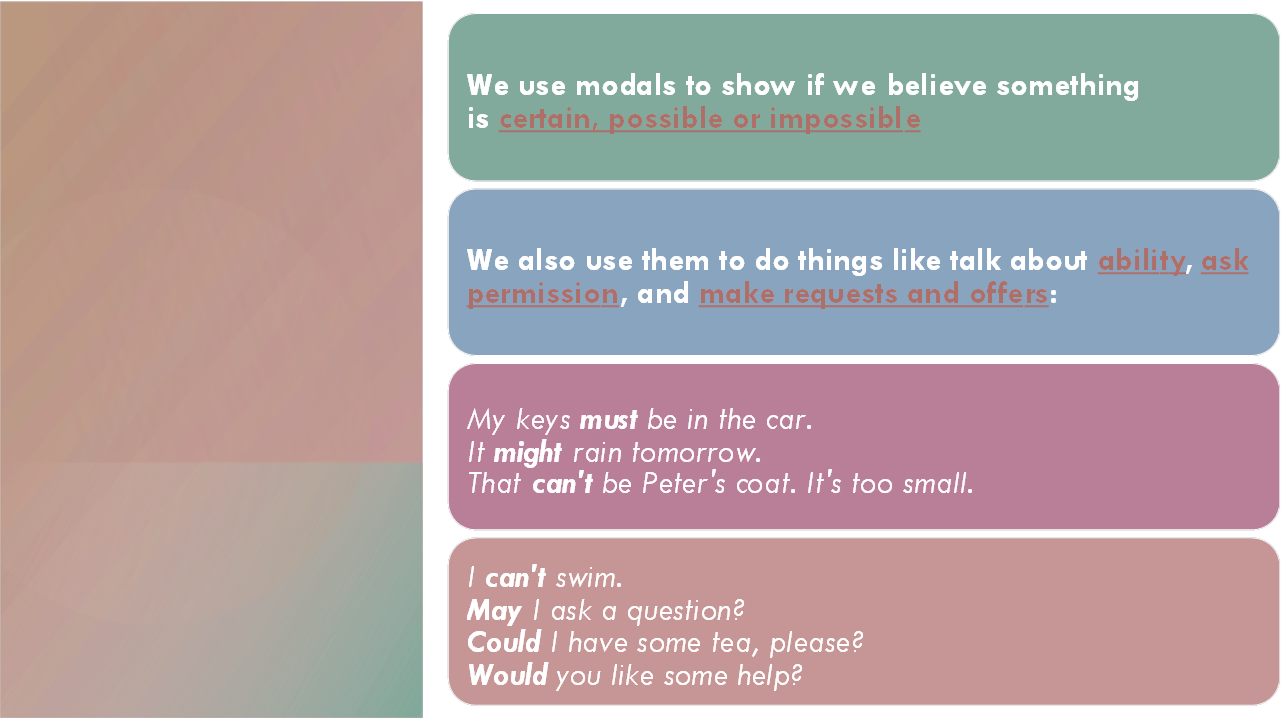
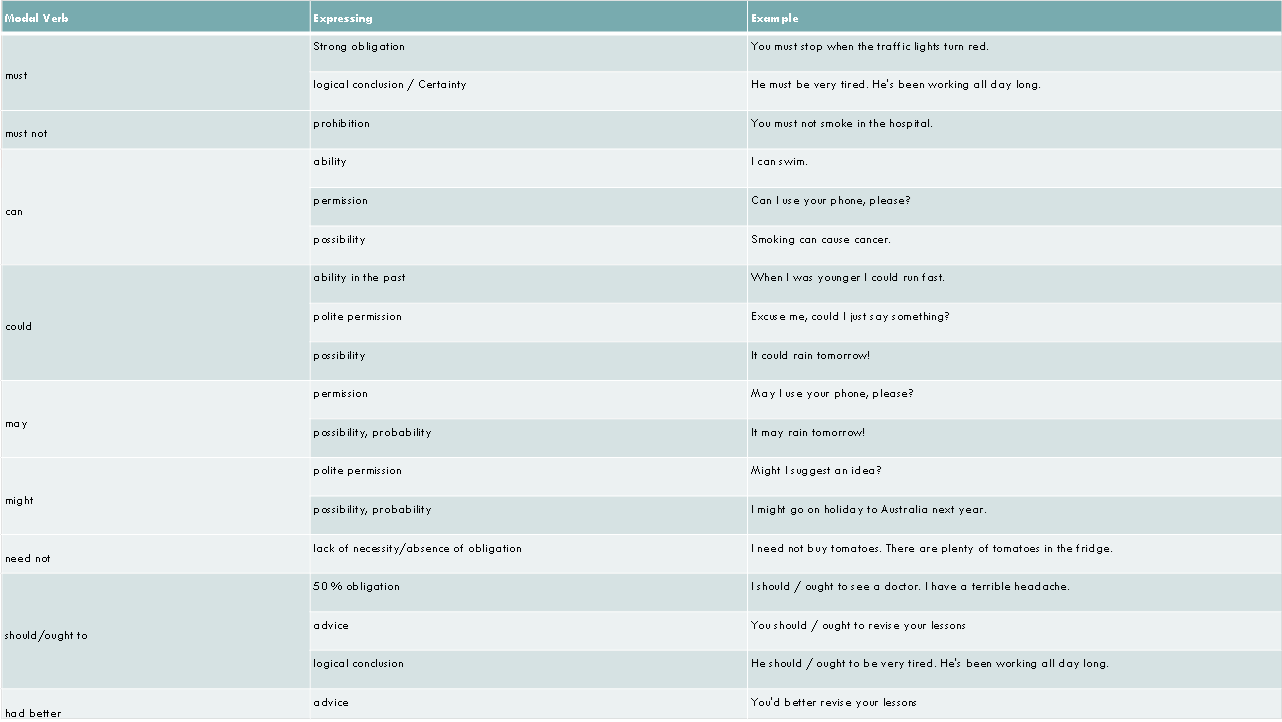
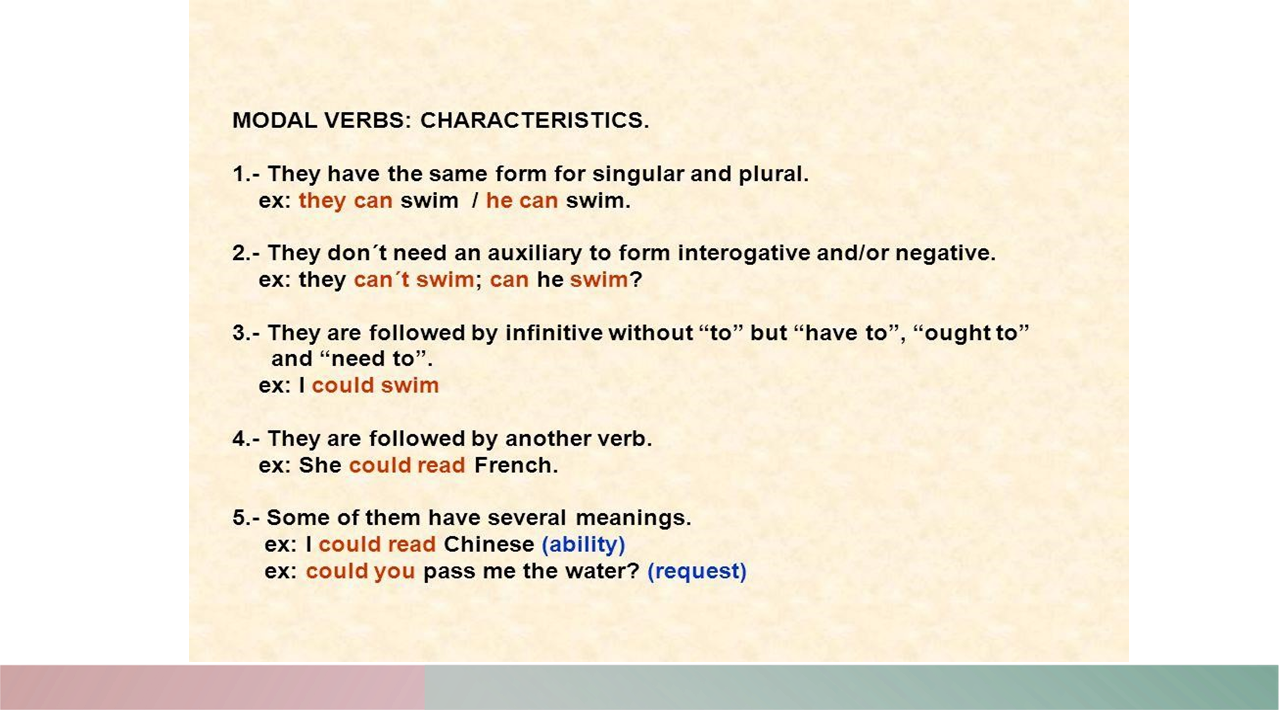
Modals for Ability
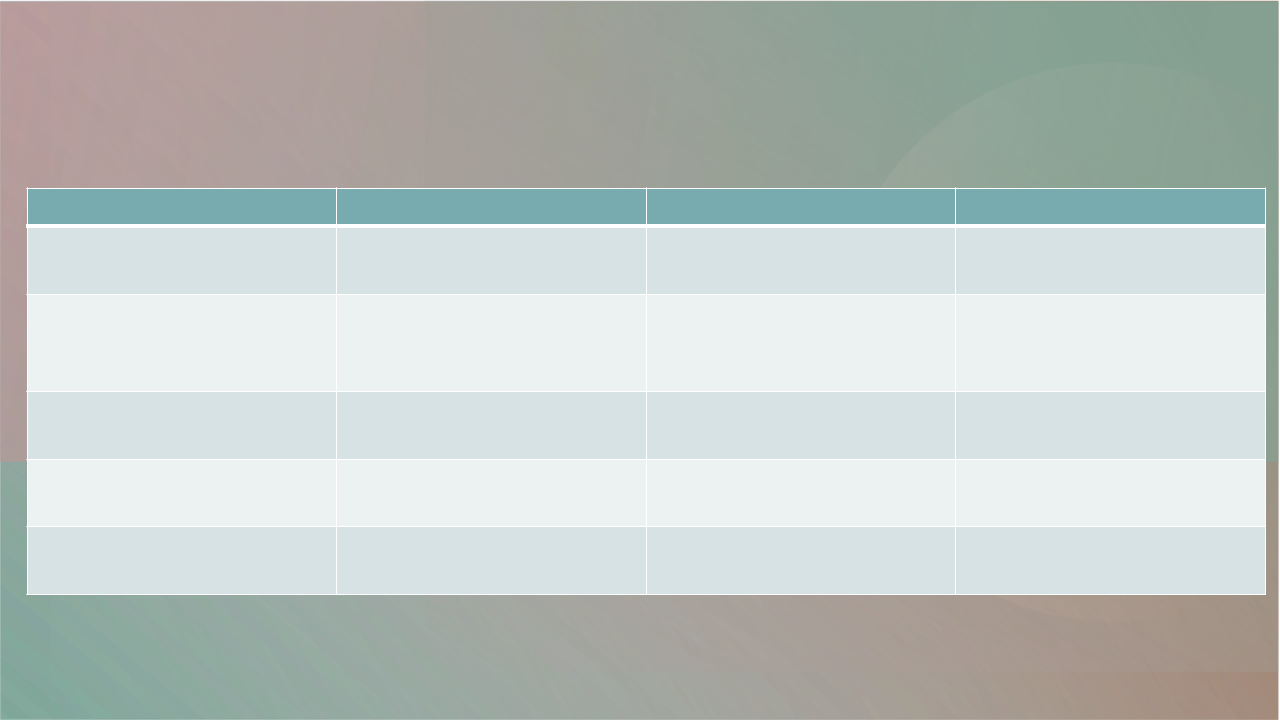 We use can, be able to and could to show that someone has (or doesn’t have) an ability to do something. Look at these examples:
We use can, be able to and could to show that someone has (or doesn’t have) an ability to do something. Look at these examples:
Present/Future Ability Negative Past Ability Negative
Alan can swim well. Jackie cannot play piano. Paul could speak Chinese when Mary couldn’t finish her he was a child. homework last night.
I can meet you after school. We can’t visit Vancouver this Last night, there were no clouds You couldn’t find the website weekend. in the sky and they could see this morning, could you?
all the stars.
I am able to speak two I am not able to speak Arabic. When I was a young child, I I wasn’t able to finish my test languages. wasn’t able to tie my shoes. yesterday.
Brenda is able to run quickly. Stacey isn’t able to finish a Shaun was able to complete Paula wasn’t able to pass the
marathon. the assignment. class.
You are able to program a We aren’t able to make a They were able to catch six You weren’t able to understand computer. reservation tonight. fish on their trip. the answer, were you?
if we want to say that someone did something in a specific situation, we must use was/were able to, or managed to + infinitive.

про публікацію авторської розробки
Додати розробку
